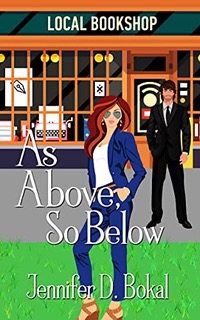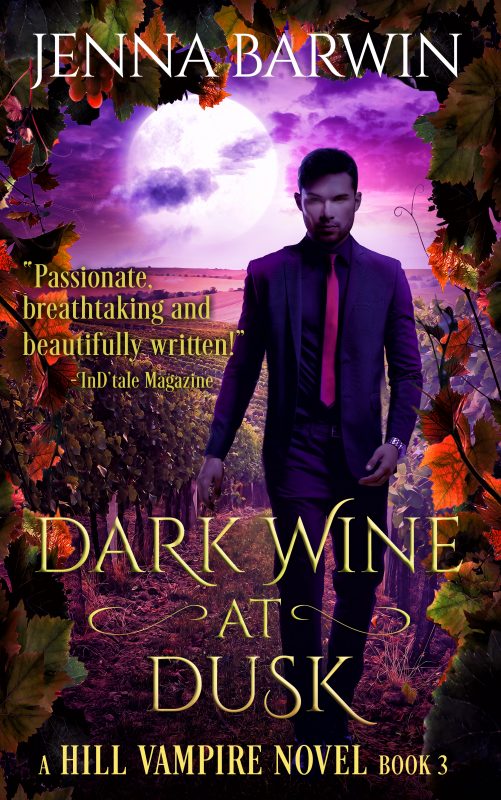
The current trend in writing is to tread carefully when using figurative language because descriptions may be offensive, such as comparing people with foods. So, even though my complexion is cappuccino and my eyes are almond-shaped, I’m not allowed to say that; even about my own self. It’s considered feeding a stereotype. In the Caribbean, we often made jokes by claiming, “I’m not really brown, I just stayed in the sun too long.” Or, “My hair’s not really kinky, it’s the humidity.”
From time immemorial, (I’m not really saying that time is old. Experienced perhaps?), people have been all colors, shapes, and sizes. Writers, artists and photographers capture what they see. Okay, maybe some artists were punished if the sovereign didn’t like how they were depicted, but a photo doesn’t lie. Yeah, that’s really you. Though nowadays you can doctor it up in photoshop.
It would seem that one may no longer describe characters as ‘cute as a button,’ ‘cool as a cucumber,’ ‘mean as a junkyard dog,’ ‘thick as thieves’, or ‘slow as molasses.’
Although, I don’t think the scarecrow from the Wizard of Oz would be offended if I called him a stuffed shirt ‘cause he was. And Jacob Marley will forever remain ‘as dead as a doornail.’
When we order coffee, do we no longer ask for a ‘short’ or ‘tall’?
The characters writers create are fictional. Figurative Language: metaphors, similes and personification, show the reader how the character perceives themselves and/or how they are perceived by others. All of which help the reader to understand the conflicts and motivations in their lives that cause them to act as they do. Descriptive language is also the artistic palette that allows readers to see the characters.
Mirror, mirror on the wall. We are who we are. When did we become so sensitive and easily offended?
In our overzealousness to be politically and diversely correct, we risk creating flat, unrealistic and unbelievable characters that by page five are dead on arrival.
Sometimes I wonder who is this collective that wants to do away with metaphors, similes and personification? As in the Wizard of Oz, I would like to draw back the curtain to reveal the ‘all-powerful’ entity controlling the literary world.
I don’t care what anyone says, the truth is the truth. My grandfather was black as tar, my father thin as six o’clock, my best-friend cackled like a chicken, my aunt nattered like a monkey, my uncle snored like a chainsaw.
And the world really is round, no matter how flat ‘they’ think it is.
See you next time on August 22nd!
Veronica Jorge
- Author Bio
- Recent Posts
- Books by Veronica Jorge
- Book Reviews by Veronica Jorge
-
April 22, 2025
I can’t think of a better way to welcome Spring and celebrate Earth Day than with a new book, especially one about nature and the earth, and following after Women’s History Month.
-
March 22, 2025
For centuries and throughout the entire world women have made valuable contributions in the arts, sciences, culture, academics, politics, the armed forces, etc. Too many women and too many areas to name without slighting any one person, field or region. Every March during Women’s History Month we commemorate their achievements.
-
February 22, 2025
Don’t be fooled by the title. This is not a book about morality or religion. Far from it. It’s all about….MURDER.
-
January 22, 2025
Manuscript…completed.
Filed in pending like a treasure in a hope chest.
Praying I don’t end up an old maid: no agent, no publisher.
-
December 22, 2024
BIG. That’s all Nisha can think about. After all, in her mind, she’s not little anymore. She’s big. So, when it’s time to buy the family Christmas tree, Nisha wants to help her father pick out the right one.
Nothing Found

Related
Affiliate Links
A Slice of Orange is an affiliate with some of the booksellers listed on this website, including Barnes & Nobel, Books A Million, iBooks, Kobo, and Smashwords. This means A Slice of Orange may earn a small advertising fee from sales made through the links used on this website. There are reminders of these affiliate links on the pages for individual books.
Search A Slice of Orange
Find a Column
Archives
Featured Books
THE ULTIMATE BETRAYAL
To prove her father’s innocence, she’ll have to turn a killer's sights on herself.
More info →DARK WINE AT DUSK
A seductive spy. An alpha vampire. A hidden threat...
More info →THE VISCOUNT’S SEDUCTION
An Irish lady from a scandalous family gets a chance at a Season in London and an opportunity for revenge, but her schemes stir up an unknown enemy and spark danger of a different sort in the person of a handsome young Viscount.
More info →Newsletter
Contributing Authors
Search A Slice of Orange
Find a Column
Archives
Authors in the Bookstore
- A. E. Decker
- A. J. Scudiere
- A.J. Sidransky
- Abby Collette
- Alanna Lucus
- Albert Marrin
- Alice Duncan
- Alina K. Field
- Alison Green Myers
- Andi Lawrencovna
- Andrew C Raiford
- Angela Pryce
- Aviva Vaughn
- Barbara Ankrum
- Bethlehem Writers Group, LLC
- Carol L. Wright
- Celeste Barclay
- Christina Alexandra
- Christopher D. Ochs
- Claire Davon
- Claire Naden
- Courtnee Turner Hoyle
- Courtney Annicchiarico
- D. Lieber
- Daniel V. Meier Jr.
- Debra Dixon
- Debra H. Goldstein
- Debra Holland
- Dee Ann Palmer
- Denise M. Colby
- Diane Benefiel
- Diane Sismour
- Dianna Sinovic
- DT Krippene
- E.B. Dawson
- Emilie Dallaire
- Emily Brightwell
- Emily PW Murphy
- Fae Rowen
- Faith L. Justice
- Frances Amati
- Geralyn Corcillo
- Glynnis Campbell
- Greg Jolley
- H. O. Charles
- Jaclyn Roché
- Jacqueline Diamond
- Janet Lynn and Will Zeilinger
- Jaya Mehta
- Jeannine Atkins
- Jeff Baird
- Jenna Barwin
- Jenne Kern
- Jennifer D. Bokal
- Jennifer Lyon
- Jerome W. McFadden
- Jill Piscitello
- Jina Bacarr
- Jo A. Hiestand
- Jodi Bogert
- Jolina Petersheim
- Jonathan Maberry
- Joy Allyson
- Judy Duarte
- Justin Murphy
- Justine Davis
- Kat Martin
- Kidd Wadsworth
- Kitty Bucholtz
- Kristy Tate
- Larry Deibert
- Larry Hamilton
- Laura Drake
- Laurie Stevens
- Leslie Knowles
- Li-Ying Lundquist
- Linda Carroll-Bradd
- Linda Lappin
- Linda McLaughlin
- Linda O. Johnston
- Lisa Preston
- Lolo Paige
- Loran Holt
- Lynette M. Burrows
- Lyssa Kay Adams
- Madeline Ash
- Margarita Engle
- Marguerite Quantaine
- Marianne H. Donley
- Mary Castillo
- Maureen Klovers
- Megan Haskell
- Melanie Waterbury
- Melisa Rivero
- Melissa Chambers
- Melodie Winawer
- Meriam Wilhelm
- Mikel J. Wilson
- Mindy Neff
- Monica McCabe
- Nancy Brashear
- Neetu Malik
- Nikki Prince
- Once Upon Anthologies
- Paula Gail Benson
- Penny Reid
- Peter Barbour
- Priscilla Oliveras
- R. H. Kohno
- Rachel Hailey
- Ralph Hieb
- Ramcy Diek
- Ransom Stephens
- Rebecca Forster
- Renae Wrich
- Roxy Matthews
- Ryder Hunte Clancy
- Sally Paradysz
- Sheila Colón-Bagley
- Simone de Muñoz
- Sophie Barnes
- Susan Kaye Quinn
- Susan Lynn Meyer
- Susan Squires
- T. D. Fox
- Tara C. Allred
- Tara Lain
- Tari Lynn Jewett
- Terri Osburn
- Tracy Reed
- Vera Jane Cook
- Vicki Crum
- Writing Something Romantic
Affiliate Links
A Slice of Orange is an affiliate with some of the booksellers listed on this website, including Barnes & Nobel, Books A Million, iBooks, Kobo, and Smashwords. This means A Slice of Orange may earn a small advertising fee from sales made through the links used on this website. There are reminders of these affiliate links on the pages for individual books.


































































































Thank you, Veronica, for an astute article to remind writers to be thoughtful when describing characters, to capture their personalities, their strengths or weaknesses within their features without resorting to insulting stereotypes.
Hi Sharon,
Thank you for taking the time to read and comment.
Standing ovation! Wonderful piece, Veronica. I have had politically correct readers take me to task for these things. But if writers lose the right to their observations and their art we might as well pack it in. Well done. Thank you so much.
Hi Rebecca, Thanks for the resounding hand clap 🙂
Hi Veronica,
what a delightful little essay.
The thought of omitting colour and colourful description from any form of writing would be as bland as those who suggest such an action.
Without doubt… I’m as happy as a lark:)
Hi James, Thank you for your encouraging words. And your ending, ‘happy as a lark.’ 🙂
Excellent points, Veronica. The extent to which we have become sensitive has become absurd, I think. But the extent to which we have become insensitive is also absurd!
Hi Neetu, Yes indeed. Important to always maintain balance.